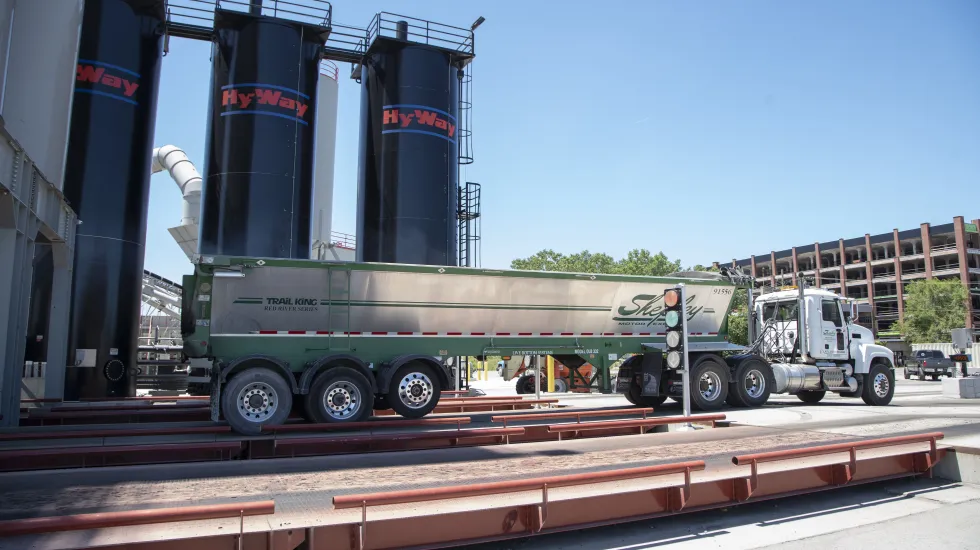
Reacting to complaints about a McKinley Park asphalt plant, a group of Chicago alderpersons is asking the city to commit to rigorous evaluations of environmental records of companies bidding for government work.
In a letter to Aileen Velazquez, the city’s chief procurement officer, seven council members led by Ald. Byron Sigcho-Lopez (25th) said stepped-up reviews are necessary and cited a recent $500 million bid by MAT Asphalt to provide city crews asphalt for street repavings, potholes and other work over five years.
MAT has been the target of hundreds of city complaints from neighbors who say the plant is a nuisance and produces foul odors — allegations the plant’s owner denies.
Even though the city hasn’t awarded the contracts, McKinley Park community members who have fought to shut down the asphalt plant since it opened in 2018 have said they are concerned that additional work may mean more production and more air pollution.
“We believe this contract requires a degree of consideration, public involvement and environmental awareness proportional to its large size and long duration,” the letter read.
Other Council members signing the letter included Maria Hadden (49th), Daniel La Spata (1st), Matt Martin (47th), Rossana Rodriguez (33rd), Carlos Rosa (35th) and Andre Vasquez (40th).
Almost two dozen community, environmental, health and social justice organizations also signed the letter.
Among the demands, the politicians and groups asked that government violations, citations and fines be taken into consideration among bidders.
MAT has been cited by city inspectors for alleged pollution violations, though the plant’s owner disputes them.
MAT, co-owned and operated by Michael Tadin Jr., is challenging $4,000 in city-assessed fines in state court. The city fined MAT alleging it violated laws for air pollution and the handling of materials that can cause dust.
“MAT Asphalt takes every reasonable precaution to combat emissions and fugitive dust and complies with all [state environmental] emissions regulations and standards,” Tadin’s lawyer Mara Georges told the Sun-Times in October.
MAT is allowed to produce up to 890,000 tons of asphalt a year under a state permit, though Tadin has said it didn’t make half that amount last year.
City officials didn’t respond to requests for comment.
In an interview, Sigcho-Lopez said he worries about added pollution in McKinley Park, which is surrounded by other industrial sources, and said community members should have an opportunity to weigh in on a contract bid like the one made by MAT. Such a process would include a written comment period and a public hearing, he said.
“Residents need the city to advocate for its constituents,” he added.
MAT has also publicly provided test results that found one measure of air pollution shows relatively low levels compared with state limits. Two other area asphalt plants also were tested last year by independent consultants, though those results have not been made public.
Brett Chase’s reporting on the environment and public health is made possible by a grant from The Chicago Community Trust.







